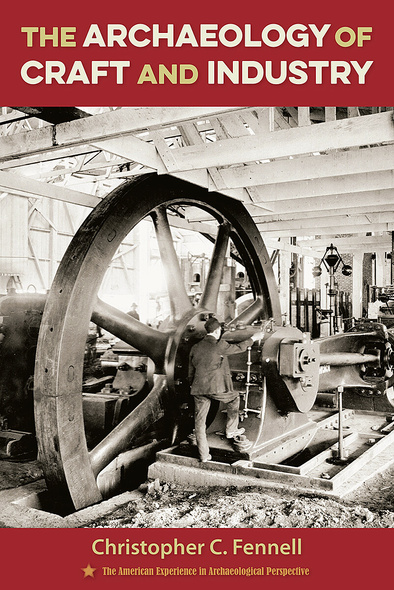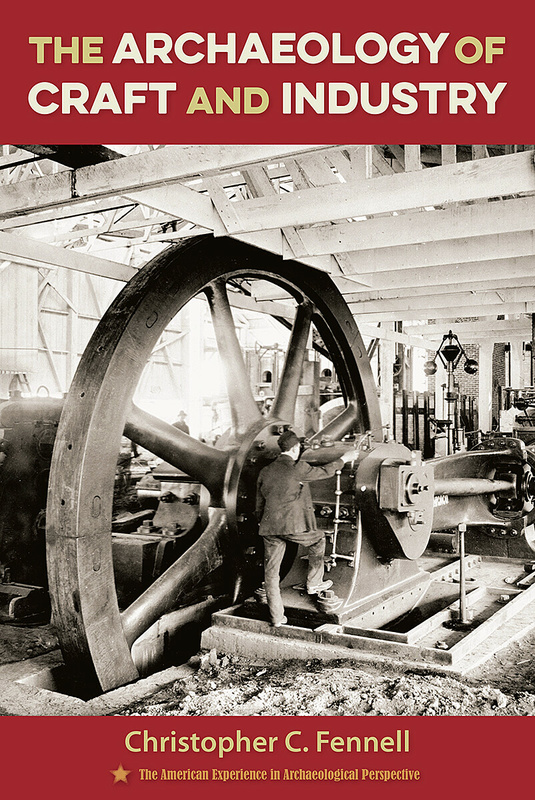Our shopping cart is currently down. To place an order, please contact our distributor, UTP Distribution, directly at utpbooks@utpress.utoronto.ca.

The Archaeology of Craft and Industry
In this expansive yet concise survey, Christopher Fennell discusses archaeological research from sites across the United States that once manufactured, harvested, or processed commodities. Through studies of craft enterprise and the Industrial Revolution, this book uncovers key insights into American history from the seventeenth through the nineteenth centuries.
Exploring evidence from textile mills, glassworks, cutlery manufacturers, and tanneries, Fennell describes the complicated transition from skilled manual work to mechanized production methods, and he offers examples of how artisanal skill remained important in many factory contexts.
Fennell also traces the distribution and transportation of goods along canals and railroads. He delves into sites of extraction, such as lumber mills, copper mines, and coal fields, and reviews diverse methods for smelting and shaping iron. The book features an in-depth case study of Edgefield, South Carolina, a town that pioneered the production of alkaline-glazed stoneware pottery. Fennell outlines shifts within the field of industrial archaeology over the past century that have culminated in the recognition that these locations of remarkable energy, tumult, and creativity represent the lives and ingenuity of many people. In addition, he points to ways the field can help inform sustainable strategies for industrial enterprises in the present day.
A volume in the series the American Experience in Archaeological Perspective, edited by Michael S. Nassaney and Krysta Ryzewski
"[Fennell’s] writing is clear, engaging, and well organized. He carefully summarizes and categorizes the range of research in historical archaeology and other fields on this industry. . . . Fennell [is] an excellent author for a book that summarizes the work of so many."—American Antiquity
“A fascinating, enlightening work. . . . Fennell has composed an achievement.”—Midcontinental Journal of Archaeology
“Fennell offers an updated review of how archaeologists have drawn meaning from the material culture of industries in the United States. . . . Fennell [draws] from a remarkable number of published sources.”—Historical Archaeology
“Fennell offers us a fresh and exciting expansion of industrial archaeology through the lens of craft production. This book, with its impressive array of case studies, unequivocally demonstrates the relevance of historical and industrial archaeology to the broader anthropological project.”—Charles E. Orser Jr., author of The Archaeology of Race and Racialization in Historic America
“Sheds light on the vast array of craft and industrial work that shaped the American experience and the North American landscape. Fennell amasses a broad range of archaeological scholarship to identify contributions and new directions.”—Paul J. White, author of The Archaeology of American Mining
Christopher C. Fennell, professor of anthropology and law at the University of Illinois at Urbana-Champaign, is the author of Broken Chains and Subverted Plans: Ethnicity, Race, and Commodities and Crossroads and Cosmologies: Diasporas and Ethnogenesis in the New World.




